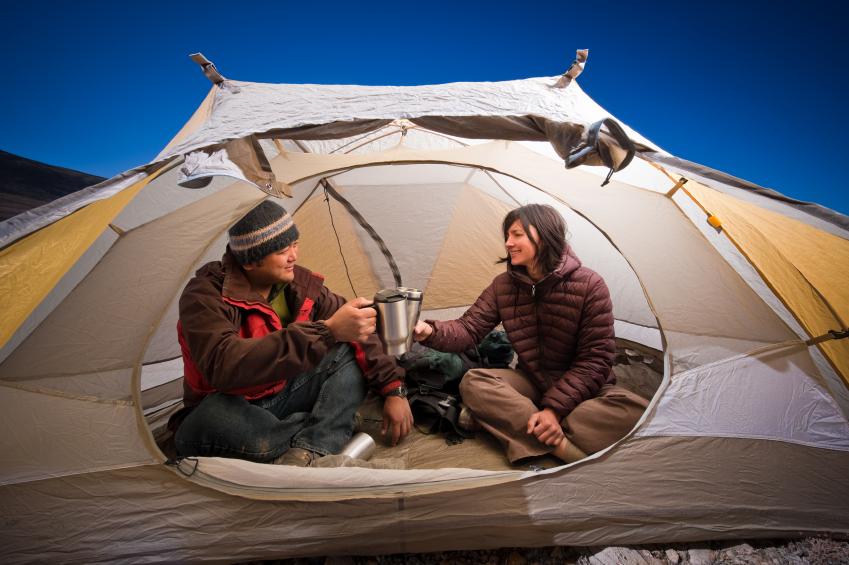- Keep vents open in your tent to cut down on condensation.
- Don’t sleep with your mouth inside your sleeping bag; condensation will form and can make you colder in the night.
- Bring lots of plastic bags. They can be used for everything and weigh nothing.
- If you don’t have a hand warmer, pour hot water in a heat-safe bottle. You can also leave a rock near the fire and wrap it in a towel to take to bed.
- Wrap duct tape around your walking stick or the frame of your backpack. It can be unraveled later if you need it. It weighs nothing and has thousands of uses.
- Pack an emergency blanket. I’ve had the same unopened “space blanket” for years, but better safe than sorry.
- Stay hydrated. It’s harder to notice becoming dehydrated in the winter. But stop drinking water one hour before bed. Trust me!
- Pee bottle, why not? You don’t want to be leaving your warm sleeping bag in the middle of the night in 15-degree weather. (See previous tip.)
- Keep something water-absorbent in your sleeping bag, like a towel, to capture any sweat you may produce at night. You don’t want that moisture on your skin, as it will turn cold and lower your body temperature.
- If you have time in the morning, flip your sleeping bag inside out and lay in the sunlight to dry and air out.
- Keep tomorrow’s clothes in your sleeping bag with you overnight. It’s much nicer to put on warm clothes in the morning.
- Attach key rings to your zippers to make them easier to use with gloves.
- Zip your coat up around the outside of the bottom of your sleeping back for extra foot warmth. Every bit helps!
[author] [author_info]Based in St. Louis, Mo., Evan Henningsen works as a freelance writer and photographer focusing on history, food and the outdoors. His work includes special interest pieces pertaining to life in the Ozarks, and his background in history provides him with a love for research and literature.[/author_info] [/author]


Leave A Comment